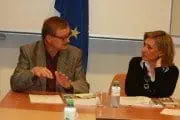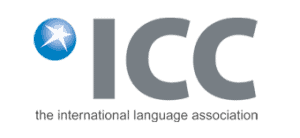Projects
The ICC promotes participation of member organisations within the ICC in relevant national and international projects and developments.
A lot of useful and valuable teaching/training material has been developed in past projects.
These materials are obtainable at the ICC Head Office (free copies for member organisations).
Completed Projects
CATAPULT
Computer-Assisted Training and Platforms to Upskill LSP Teachers
CATAPULT was an Erasmus + project running for 3 years from 2019 – 2021. The project aimed to offer training and tools for teachers of language for specific purposes in adult and higher education. This was a 6 institution project led by the Sorbonne, combining expertise from Universities, the private sector and, in our case INGO networking. The cornerstone of the project was a MOOC course led by the design team at Turku University of Applied Science with contributions from the rest of the project consortium. Data and concepts that underpinned the MOOC were provided through a situational survey – to establish the extent and nature of any existing LSP professional development – and through a common competence framework, which set out the skills and competences an LSP teacher would need. The project also considered a teacher’s development after completing the MOOC and set up a Community of Practice platform as well as a matching teacher to client facility mainly targeting freelance teachers (Linguaclick)
Although the project had to deal with moving everything online due to COVID, it was highly successful and has led to a number of academic publications as well as more iterations of the MOOC than were originally projected.
For more information and access to all the products of the project go to http://catapult-project.eu/
Although the project is finished the MOOC course can still be accessed at https://www.thecn.com/5477863
CATAPULT Training Videos
Myriam Fischer Callus
Intercultural Activities in the Classroom
Patricia Wolmer
Challenges in Online Teaching and Training
Rob Williams
Task Based Assessment
Rob Williams
Working With Needs Analysis
Geoff Tranter
Teaching LSP Within Your Comfort Zone
Michael Carrier
Teaching Online and Remotely in the Post-COVID Environment
Barry Tomalin
Designing Critical Incidents
Barry Tomalin
The Client Perspective
CoMoViWo
Communication in Mobile and Virtual Work
COMOVIWO was an Erasmus + project coordinated by Turku University of Applied Sciences. Its aim was to prepare learners of English for the specific context of the virtual workplace at a European level, where a lingua franca is used to communicate between regions and cultures.
The project defined the skills and competences needed in virtual and mobile work in a multicultural environment and produced a series of online training modules as part of capacity building, so that learners could increase their digital literacy, their intercultural awareness and their communicative competence. Modules were produced in English and Spanish, since it is not always the case that English is the lingua franca in the workplace.
FACTS
Foreign Language Assessment of Competences Test System
The main goal of this project is to support the competences of the immigrants and their descendants so they may live and work in an increasingly complex society, strengthen their relationship to the job market, and gain access to continuing education programs by documenting their language competences regarding their native language and their parents’ language.
One purpose of the project is to assist in increasing the immigrants’ relationship to the job market by developing tools to document language competences in the immigrant language.
Interactive tests in English, French, Italian, Spanish and German will be complemented by tests in e Arabic, Turkish and Chinese. Immigrants and emigrants will thus be more easily and accurately document their competences in their native/parents’ language. Project coordinator is Studieskolen, Denmark.
CAMELOT

EUROVOLT via VLE
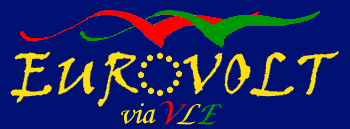
Research conducted by the International Certificate Conference (ICC) for the European Commission, the experience of different members of this consortium in related work have shown quite clearly that there is an urgent need to develop the new literacies (scientific, digital, practical, linguistic and cultural) if vocational language teachers and trainers are to take full advantage of the possibilities offered by virtual learning environments.
A major shift of paradigm in the cultures of learning is called for in current publications and surveys on this subject, (see “The impact of new information technologies and internet on the teaching of foreign languages and on the role of teachers of a foreign language”, a report commissioned by the Directorate General of Education and Culture in 2003).
Euroversity Network
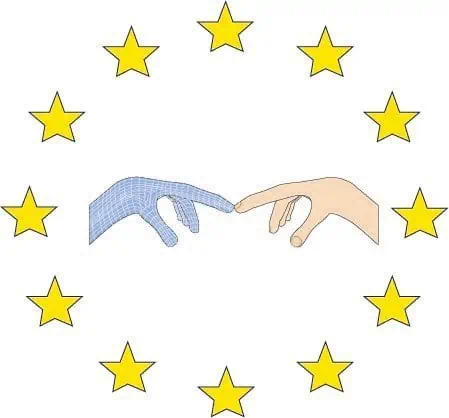
The project involves nineteen partners from ten countries, in the development of an advanced network of experienced practitioners in virtual world education delivery. The expressed aim of this network is in helping organisations and individual lecturers in getting started with virtual worlds from a platform of good practice and identified support tools.
The network will learn from the experiences of partners within the group of organisations involved, pool together knowledge and resources from previous projects, and create guidance to other practitioners on good practice implementation of courses within virutal worlds (in the form of a good practice framework). It also aims to evaluate the impact of established good practice through evaluation within partner organisations and other interested parties from outside the consortium. This evaluation will take place across multiple learner stages of the learning continuum (lower and higher education) and contexts.
PICT

The project partners came from Finland, France, Bulgaria, Poland and Italy and was coordinated by the University of Westminster. The ICC’s role was in the area of dissemination.
ICC member organizations should be particularly interested in the pedagogical and assessment materials that are available free of charge on the website (www.pictllp.eu). The pedagogical materials include a number of papers offering background details and classroom materials, for example “Critical Incidents” – Session Plan”, “The Iceberg Theory – Session Plan and Student Worksheet”, Among the Assessment Materials, the “CV Assessment”, “Analyzing Intercultural Relations and Deciding How to Act” or “PICT Assessment Negotiation Manual and Commentary” or even “Comparing Microsoft Guidelines for different Languages – Session Plan should be of particular interest.
Chinese for Europeans
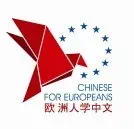
These modules are complemented with an Information Pack entitled “Things to Know Before You Go” providing essential background and intercultural information, all the materials being available in as many as 23 (!) different European languages. The six partners in the project are from five European countries – Poland, Belgium, Britain, Italiy and Lithuania, the coordination being in the hands of Mescomp Technologies S.A. based in Warsaw. All other information on the project as well as the four modules are available on the project website www.chinese4.eu.
For ICC members this project has high potential. The modules can be easily integrated as a ‘bolt-on’ for any course, regardless of the age group. Equally they can be used as an additional self-study option and because of the audio materials provided are very suitable for classroom use.
In addition there are some interesting features that can help to enhance normal classroom procedures by means of different ways of delivering materials. For instance, the calligraphy workshop in the children’s module, the use of e-mailing, the App for the tourist module so that tourists can simply refer to their smartphone instead of walking round with a notebook.
The acceptance of the course has been far higher than expected. For example, the number of hits has been ten times higher than anticipated and there are stakeholders from a number of countries (cf. website) supporting and endorsing the materials.
ELTACS
The ELTACS project (European Language Teachers Assessment and Certification Scheme) is a dissemination project funded by the European Commission as a part of the Education and Culture DG Lifelong Learning Programme.
The aims of the project are to update and disseminate the existing European Certificate in Language Teaching to Adults: EUROLTA and to initiate an innovative teacher training scheme which complements the existing training model as EUROLTA certification for teacher trainers (EUROLTA MASTER TRAINERS)
LeTS GO

- a training package which focuses on the application of eLearning in a language teaching context
- a database of products containing electronic based language teaching nad learning materials
- a tools section where a collection of online sources can be accessed which is useful to create eLearning based materials.
PELLIC
The PELLIC project (www.pellic.eu) is an EU funded project that aims to create a virtual learning environment (VLE) and course materials for language courses where students can practice intercultural and business communication skills. The PELLIC course is designed as a blended learning course.
The outcomes include teacher support material in order to facilitate adaptation of results for other European languages.
The PELLIC project is coordinated byTurku University of Applied Sciences.
Tell Me How!
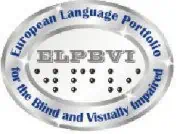
The ELPBVI is an electronic model of the European Language Portfolio created for the blind and visually impaired language learners by a consortium of European partners 2008 – 2009.
The project encourages blind and visually impaired people to use the ELPBVI which helps them to achieve better results in learning languages.
DeafPort
The main objective of the project DeafPort is to develop a multilungual European Language Portfolio for the Deaf and Hearing- Impaired
Diverse Europe at Work
The project Diverse Europe at Work (DEW) aims to advocate intercultural communication as a key competence of lifelong learning for all in the European workplace.
AVALON
The project AVALON (Access to Virtual and Action Learning Live Online) focuses on facilitating language learning in virtual 3D worlds.
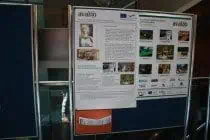
The project is a transversal programme which targets language learners from the Leonardo da Vinci, Erasmus and Gruntdvig communities. Not only does the project aim to create a platform in which these diverse learning communities can come together but it also has a particular interest in providing access to technology and language learning to learners in remote locations. The ultimate aim of the project is to create both a virtual environment and a sustainable community of practitioners and users which will outlive the project itself.
The free client programme of Second Life®, for example, is a 3D virtual world accessible via the Internet and which enables its users to interact with each other through ‘Avatars’. An ‘avatar’ is the graphical representation of a computer user representing himself/herself or alter ego and communication with others is possible via both voice and text chat.
Some of the benefits include the provision of online synchronous communication for linguistic communities which are dispersed over vast geographical areas, the co/re-construction of cultural and linguistic identity, opportunities for authentic language contact between native, heritage and L2 learners, the unparalleled creative dimension of the platform in particular in terms of individual and collaborative building and learner movement and freedom within the environment. For more information visit the project website www.avalonlearning.eu
If you wish to get involved in the discussion, please visit the project NING site
ICC Interactive Whiteboard
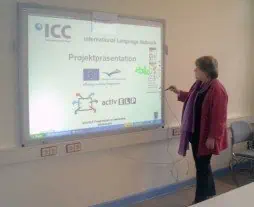
In the activeELP project the Interactive Whiteboard plays a special role.
Part of the project is to train language teachers to implement the European Language Portfolio via Interactive Whiteboard in their classes. The classroom tasks prepared by project partners for the teacher training include quizzes, webreferences, internet research and access to various resources as video clips, sound tracks etc. which can be most effectively dealt with via Interactive Whiteboards.
We’ll keep you informed about further developments in this very exciting project.
activeELP
Mentors Activiate European Language Portfolio through Multimendia
The goal of the project “Mentors Activate European Language Portfolio through Multimedia”(ActivELP) was to stimulate practical use of the European Language Portfolio (ELP). The ELP was developed and piloted by the Language Policy Division of the Council of Europe. Many specific ELPs have been developed covering different types of learners and different languages. The aim of this tool is to encourage plurilingualism, multilingualism, to motivate and facilitate language learning.
The ActivELP project proposed two channels: mentoring and multimedia. Multimedia tools will ensure the access to the ELP by groups and individual learners allowing to practice the ELP through interaction. Mentoring will enable us to reach teachers in different education sectors, and to pass on practical skills of using ELP through multimedia.
The specific aims of ActivELP project were
- to develop a training program for language teachers “ELP in Language Teaching through Multimedia” and mentoring guidelines for implementation of this program;
- to train a group of language teachers-mentors from all EU countries;
- to test the training program for use of the ELP by language teachers.
The consortium involved partners from Bulgaria, Italy, Latvia, Poland, Germany, Greece, Turkey who have developed and worked with different types of ELPs; These partners are well experienced in the use of ICT tools in language teaching and learning, they are experienced in teacher mentoring and they represent different types of learners.
As part of the needs analysis to develop the teacher training programme, project partners have developed a questionnaire for language teachers
Linguapeace Europe

Great news from Boian Savtchev, ECET Bulgaria, ICC Treasurer and Coordinator of the Linguapeace Europe Project (LPE). The LPE has received one of the 10 ‘Helsinki Awards 2006’ for best practice. The ICC- The European Language Network had a central role in this project, being responsible for the design and delivery of the European Language Portfolio designed for peacekeeping English. The prize was announced at the meeting of the European ministers by the EU Commissioner Ján Figel and the Finnish Minister of Education and Science Antti Kalliomäki, who presented the awards on 4 December, and the 10 awarded projects were then presented at the Conference “From Copenhagen to Helsinki” held on 5 December 2006 in Helsinki, Finland, which supplemented the Ministerial Meeting. The project is also included in the Best Practice Projects Compendium (2000-2006), a special publication of the European Commission. More info can be found at http://www.minedu.fi/vet2006
ELPBVI
European Language Portfolio for Blind and Visually Impaired
The ELPBVI project was funded by European Commission under the Socrates Lingua 2 Programme. The main objective was to develop a multilingual European Language Portfolio for the Blind and Visually-Impaired (ELPBVI) with a view to:
- enhancing their motivation to develop, extend and diversify their language skills;
- helping them to reflect on their objectives, ways of and success in language learning;
- developing their capacity for independent learning;
- addressing learning needs in the most comprehensive way, providing suitable format and adaptation of descriptions;
- introducing commonly recognized standards and ensuring transparency and coherence in language learning
The ELPBVI model of the European Language Portfolio addressing the language learning needs of the Blind and Visually-Impaired put language teaching and learning of the blind and visually impaired in the context of common European standards, in order:
- to provide transparent and reliable information on language skills and competences of the learners
- to keep records of achievements in their language learning
- to maintain their motivation for language learning
- to plan their learning strategy
- to enhance their plurilingual and intercultural experience
The partners came from Austria, Bulgaria, Greece, Germany and the United Kingdom; they developed a questionnaire in order to analyse language needs and develop specifications for this specific target Group.
